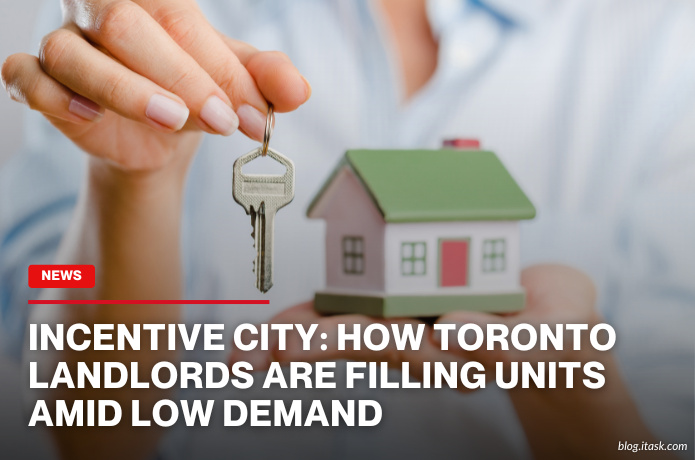Incentive City: How Toronto Landlords Are Filling Units Amid Low Demand
Incentive City: How Toronto Landlords Are Filling Units Amid Low Demand

If you recently moved into a Toronto apartment, odds are you were offered something extra to sign the lease. In the first quarter of 2025, about 63 percent of buildings in the Greater Toronto–Hamilton Area offered incentives—double the share from the same time in 2024. These perks include one or two months of free rent, gift cards for furniture stores, free car washes, and even straight cash. The aim is simple: fill empty units when demand is weak.
Vacancy rates in Toronto reached 3.7 percent in Q1 2025, and average rent fell by about 5.5 percent year-over-year to roughly $2,606 by May. A surge of new condo supply and slower population growth due to lower immigration targets are key factors behind this trend. Many people aren’t moving as often, so turnover rates are low and units sit vacant for longer periods.
That surge in new housing—especially condo completions—has flooded the market. In 2024, about 29,000 new condo units were completed in the GTA, and nearly 40 percent of those ended up for rent. Listings have climbed sharply, and landlords are reluctant to cut base rents, so they boost offers with non-traditional perks instead.
Some landlords take a strategic approach when offering incentives. For example, some developers decide based on how long a unit has been listed, showing feedback and market conditions. They emphasize built-in perks like free Wi-Fi and gym access instead of adding separate incentives when possible. Others include extras such as virtual healthcare, furniture or moving discounts along with traditional rent-free offers.
Despite the generosity, not all apartments need incentives. Rent-controlled buildings or in-demand studios and one-bedrooms often fill without promotions. Newer properties without rent control and with high vacancy tend to lean on perks more heavily. So tenants shopping around are more likely to find deals in newer, non-rent-controlled units.
Industry experts predict that incentives will continue as long as supply stays high and demand stays soft. But if immigration picks up or new supply slows, the trends could reverse. When supply shrinks and demand picks up, perks are likely to disappear. For now, renters in Toronto have regained some of the leverage they lost during recent years of tight markets.
